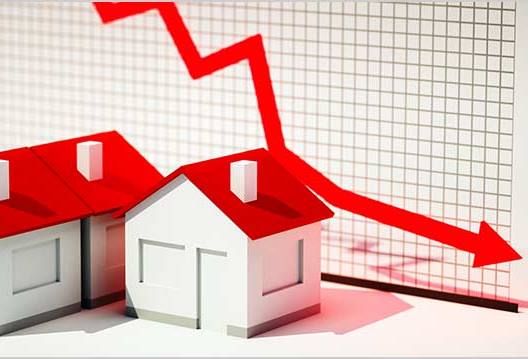British house prices fell for the first time in seven months in January before the end of a tax cut for buyers on March 31, mortgage lender Nationwide said on Tuesday, adding that the market could weaken sharply.
House prices jumped in 2020 after Britain‘s first coronavirus lockdown last spring, helped by finance minister Rishi Sunak‘s decision to suspend purchase taxes on properties worth up to 500,000 pounds ($684,400.00) and by people seeking bigger homes in response to the lockdown restrictions.
But Nationwide said they dropped by a monthly 0.3% in January, slowing annual growth to 6.4% from 7.3% in December, which was the biggest jump in six years.
Economists polled by Reuters had expected a monthly increase of 0.3% in January and a 6.9% rise in annual terms.
“To a large extent, the slowdown probably reflects a tapering of demand ahead of the end of the stamp duty holiday, which prompted many people considering a house move to bring forward their purchase,” said Robert Gardner, Nationwide’s chief economist.
“If the stamp duty holiday ends as scheduled, and labour market conditions continue to weaken as most analysts expect, housing market activity is likely to slow, perhaps sharply, in the coming months.”
A Reuters poll of analysts published on Tuesday showed prices were expected to flat-line this year before rising by 2.7% in 2022.
But Howard Archer, an economist with the EY ITEM Club, a forecasting firm, said house prices could fall by about 5% by the end of 2021.
British media have reported that Sunak might extend the tax break, alongside more support for the labour market, as he seeks to help the economy through the COVID-19 pandemic.
His existing emergency measures for the current financial year will cost more than 280 billion pounds, putting the government on course for its biggest-ever peacetime borrowing.
Samuel Tombs, an economist with Pantheon Macroeconomics, said other options to help the housing market included a relaxation of mortgage affordability rules by the Bank of England or a new government mortgage-guarantee scheme.
“We think the government will prefer to keep these options in reserve for stimulating the housing market closer to the next election in 2024, but the deployment of any of them probably would stop prices from falling back this year,” he said.

